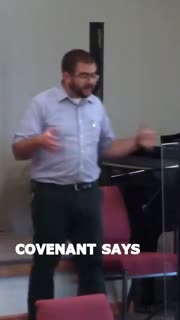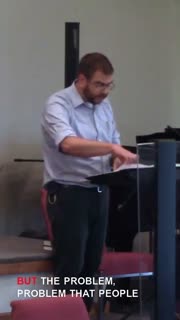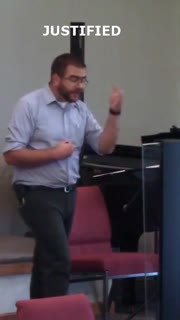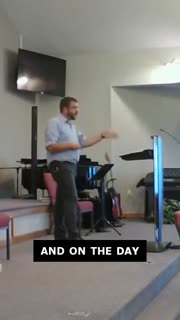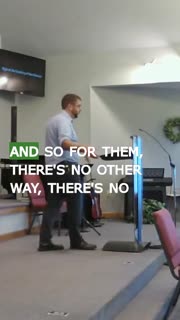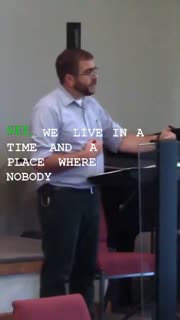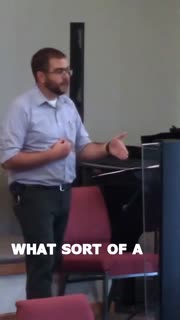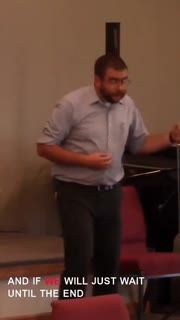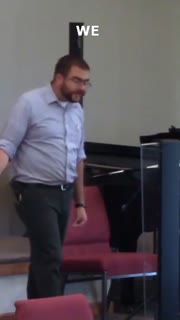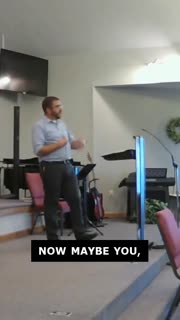God's Faithfulness: The Promise and Power of Salvation
Summary
In our journey through the book of Acts, we are reminded of the grand narrative of God's promise to Abraham, which unfolds through the history of Israel. This promise was that through Abraham's descendants, all nations would be blessed. Despite Israel's repeated cycles of sin and repentance, God remained faithful, sending prophets to call His people back to Him. These prophets also foretold the coming of a Messiah, a Savior who would be greater than Moses, Aaron, and David. This Messiah, as prophesied by Isaiah, would bring good news to the poor, heal the brokenhearted, and proclaim liberty to captives.
Jesus of Nazareth fulfilled these prophecies, declaring Himself the Messiah and demonstrating His divine authority through miracles. He called people to repentance, emphasizing that true obedience to God is a matter of the heart. While some believed and followed Him, others, particularly the religious leaders, rejected Him, leading to His crucifixion. Yet, Jesus willingly submitted to this, knowing it was part of God's plan. He rose on the third day, proving His victory over sin and death, and commissioned His disciples to spread the Gospel.
In Acts 3, we see Peter and John healing a man lame from birth, a powerful sign of the Messiah's kingdom breaking into the world. This miracle echoes Isaiah's prophecy and serves as a testament to Jesus' ongoing work through His followers. It challenges us to consider what signs of God's kingdom we might see today. Repentance and peace are profound signs in our world, where admitting wrongs and finding peace amidst chaos are rare. These are the marks of God's kingdom breaking through.
The healing of the lame man also symbolizes our own salvation. Just as he was physically restored, we are spiritually restored through Christ. We were dead in our sins, but God, rich in mercy, has made us alive in Christ. This new life is a gift of grace, not earned by our works but given freely by God. Our response should be one of praise and transformation, living in the power of the Spirit to do what was once impossible for us.
Key Takeaways:
- God's promise to Abraham and the cycle of Israel's sin and repentance highlight His faithfulness and the anticipation of a Messiah who would bring ultimate redemption. This narrative sets the stage for understanding Jesus' role as the fulfillment of God's promises. [24:09]
- Jesus' life and ministry fulfilled the prophecies of the Messiah, demonstrating His divine authority and calling people to a deeper understanding of sin and repentance. His resurrection is the cornerstone of our faith, proving His victory over sin and death. [29:09]
- The healing of the lame man in Acts 3 is a sign of the Messiah's kingdom breaking into the world, challenging us to consider what signs of God's kingdom we might see today, such as repentance and peace. [39:21]
- Our salvation is a gift of grace, symbolized by the healing of the lame man. We were spiritually dead, but God has made us alive in Christ, calling us to live transformed lives empowered by the Holy Spirit. [51:04]
- Baptism and communion are celebrations of our new life in Christ, proclaiming our faith and the transformative work of Jesus in our lives. They remind us of the grace we have received and our commitment to follow Him. [57:23]
Youtube Chapters:
- [0:00] - Welcome
- [24:09] - God's Promise to Abraham
- [24:58] - Israel's Cycle of Sin and Repentance
- [26:07] - Prophecies of the Messiah
- [28:22] - Jesus Fulfills the Prophecies
- [29:09] - Jesus Declares His Messiahship
- [30:37] - The Call to Repentance
- [31:59] - Rejection and Crucifixion
- [33:16] - Jesus' Resurrection and Commission
- [35:05] - Healing at the Beautiful Gate
- [39:21] - Signs of the Messiah's Kingdom
- [42:38] - Repentance as a Modern Sign
- [45:59] - Nature of Jesus' Kingdom
- [51:04] - Our Salvation in Christ
- [57:23] - Celebrating New Life: Baptism and Communion
Study Guide
### Bible Study Discussion Guide
#### Bible Reading
- Acts 3:1-10
- Isaiah 61:1-2
- Ephesians 2:1-10
#### Observation Questions
1. What was the significance of the healing of the lame man at the Beautiful Gate in Acts 3? How did it serve as a sign of the Messiah's kingdom? [39:21]
2. How did Jesus fulfill the prophecies of the Messiah as described in Isaiah 61? What specific actions did He take that demonstrated His divine authority? [29:09]
3. According to Ephesians 2, what is the nature of our salvation, and how is it similar to the healing of the lame man? [51:04]
#### Interpretation Questions
1. How does the cycle of sin and repentance in Israel's history highlight God's faithfulness and the anticipation of a Messiah? What lessons can be drawn from this cycle? [24:58]
2. In what ways does the healing of the lame man symbolize the breaking through of God's kingdom into our world today? How can repentance and peace be seen as signs of this kingdom? [42:38]
3. How does the sermon suggest that our spiritual restoration through Christ is similar to the physical healing of the lame man? What implications does this have for our understanding of grace? [51:04]
#### Application Questions
1. Reflect on a time when you experienced a cycle of sin and repentance in your own life. How did you see God's faithfulness during that time, and what steps can you take to break the cycle? [24:58]
2. Consider the signs of God's kingdom in your life today. How can you cultivate a spirit of repentance and peace in your daily interactions? [42:38]
3. The sermon emphasizes the importance of living a transformed life empowered by the Holy Spirit. What specific area of your life do you feel called to change, and how can you rely on the Spirit's power to do so? [55:14]
4. How can you actively participate in proclaiming the good news of Jesus' kingdom in your community? Identify one practical way to share your faith with someone this week. [29:09]
5. Baptism and communion are celebrations of our new life in Christ. If you have not been baptized, what steps can you take to explore this commitment? If you have, how can you deepen your understanding and appreciation of communion? [57:23]
6. Reflect on the question posed in the sermon: "What is it that you need that only God can provide?" How can you seek God's provision in this area and trust in His timing? [45:28]
7. The sermon challenges us to live in the power of the Spirit to do what was once impossible. Identify a specific challenge you face and consider how you can invite the Holy Spirit to guide and empower you in overcoming it. [56:01]
Devotional
Sure, here is the 5-day devotional based on the key takeaways from the sermon summary:
---
Day 1: God's Unwavering Faithfulness Through History
God's promise to Abraham set the stage for a grand narrative that unfolds throughout the history of Israel. Despite Israel's repeated cycles of sin and repentance, God remained faithful, continually sending prophets to call His people back to Him. These prophets also foretold the coming of a Messiah, a Savior who would bring ultimate redemption. This narrative highlights God's unwavering faithfulness and the anticipation of a Messiah who would fulfill His promises. Understanding this context helps us see Jesus' role as the fulfillment of God's promises, bringing hope and redemption to all nations. [24:09]
Genesis 12:2-3 (ESV): "And I will make of you a great nation, and I will bless you and make your name great, so that you will be a blessing. I will bless those who bless you, and him who dishonors you I will curse, and in you all the families of the earth shall be blessed."
Reflection: Consider a time when you felt distant from God. How did you experience His faithfulness in bringing you back to Him, and how can you share that story with someone who needs encouragement today?
---
Day 2: Jesus' Fulfillment of Messianic Prophecies
Jesus of Nazareth fulfilled the prophecies of the Messiah, demonstrating His divine authority through His life and ministry. He called people to repentance, emphasizing that true obedience to God is a matter of the heart. His resurrection is the cornerstone of our faith, proving His victory over sin and death. This fulfillment of prophecy not only validates Jesus' claims but also calls us to a deeper understanding of sin and repentance, inviting us to live in the light of His resurrection. [29:09]
Isaiah 61:1-2 (ESV): "The Spirit of the Lord God is upon me, because the Lord has anointed me to bring good news to the poor; he has sent me to bind up the brokenhearted, to proclaim liberty to the captives, and the opening of the prison to those who are bound; to proclaim the year of the Lord's favor, and the day of vengeance of our God; to comfort all who mourn."
Reflection: Reflect on an area of your life where you need to experience Jesus' healing and freedom. How can you invite Him into that space today?
---
Day 3: Signs of the Kingdom Breaking Through
The healing of the lame man in Acts 3 is a powerful sign of the Messiah's kingdom breaking into the world. This miracle echoes Isaiah's prophecy and serves as a testament to Jesus' ongoing work through His followers. It challenges us to consider what signs of God's kingdom we might see today, such as repentance and peace. In a world where admitting wrongs and finding peace amidst chaos are rare, these are profound signs of God's kingdom breaking through. [39:21]
Acts 3:6-8 (ESV): "But Peter said, 'I have no silver and gold, but what I do have I give to you. In the name of Jesus Christ of Nazareth, rise up and walk!' And he took him by the right hand and raised him up, and immediately his feet and ankles were made strong. And leaping up, he stood and began to walk, and entered the temple with them, walking and leaping and praising God."
Reflection: Identify a situation in your life or community where you can be a sign of God's kingdom. What practical steps can you take to bring about repentance or peace in that situation?
---
Day 4: Salvation as a Gift of Grace
Our salvation is a gift of grace, symbolized by the healing of the lame man. Just as he was physically restored, we are spiritually restored through Christ. We were dead in our sins, but God, rich in mercy, has made us alive in Christ. This new life is a gift of grace, not earned by our works but given freely by God. Our response should be one of praise and transformation, living in the power of the Spirit to do what was once impossible for us. [51:04]
Ephesians 2:4-5 (ESV): "But God, being rich in mercy, because of the great love with which he loved us, even when we were dead in our trespasses, made us alive together with Christ—by grace you have been saved."
Reflection: Think about an area in your life where you have experienced God's grace. How can you express gratitude for this grace in your daily actions and interactions with others?
---
Day 5: Celebrating New Life in Christ
Baptism and communion are celebrations of our new life in Christ, proclaiming our faith and the transformative work of Jesus in our lives. They remind us of the grace we have received and our commitment to follow Him. These sacraments are not just rituals but profound expressions of our identity in Christ and our unity with His body, the Church. As we participate in them, we are reminded of the ongoing work of transformation that God is doing in us and through us. [57:23]
Romans 6:3-4 (ESV): "Do you not know that all of us who have been baptized into Christ Jesus were baptized into his death? We were buried therefore with him by baptism into death, in order that, just as Christ was raised from the dead by the glory of the Father, we too might walk in newness of life."
Reflection: Reflect on your baptism or the last time you took communion. How can you live out the reality of your new life in Christ this week in a tangible way?
Quotes
1) "And that covenant says that the Lord God has special plans for Israel. They are supposed to be a light to the nations. To tell the nations who God is. And to call all people to place their faith in Him. And if they are faithful to do all of the things that God tells them to do, and they do not turn aside and worship other gods, then He will be their God forever. And they will dwell in that promised land forever. However, if they turn away from the Lord in sin, and they worship other gods, then He says they will be disciplined. And if they persist in their faith, in their turning away from God, then He will turn away from them and take them out of the land." [24:09] (44 seconds)
2) "But the problem, problem that people seem to have with Jesus is that repentance piece. That's a little bit of a sticky wicket. Because Jesus defines sin much more broadly than they were used to thinking of it. Jesus says that the law of God is summarized in two commands. To love the Lord your God with all your heart, soul, mind, and strength. And to love your neighbor as yourself. And He goes further when He says that what truly matters isn't just the deeds that you do, not just the words that you say, not just the sacrifices that you bring, but what truly matters is what lies in your heart." [30:37] (43 seconds)
3) "Now they justified it to themselves, saying that it was better that one innocent man die than it would be for them to lose everything that they had built for themselves. so they arrested Him in secret. They tried Him in secret. And through political pressure and maneuvering, they had Him nailed to a Roman cross to die. But the thing is that Jesus knew what it was that they were trying to do. He even told His disciples what would happen. And He submitted Himself to it." [32:36] (32 seconds)
4) "And on the day of Pentecost in Acts 2, the Spirit came in power, enabling the disciples to speak in languages that they didn't know, as a sign of the power and of the authority to proclaim the Good News, the Gospel, the coming of the Kingdom of God under King Jesus, and their authority to call all people to repent of their sins and to place their trust in Him. And on that day, the Church of Christ was born. And out of those 120 faithful disciples who had gathered together, 3,000 people placed their faith in Jesus and were baptized on that day." [34:30] (37 seconds)
5) "And so for them, there's no other way, there's no other way, that he could have been healed other than the Lord God to reach down and to touch him. But if somebody today experiences that sort of healing, and I do believe that God can and does heal people, but that healing is often met with joy by believers, yes, skepticism by most, and apathy by others. Because in an age where there's a pill for everything and a surgery for the rest, and everyone is trained to be skeptical of everything, healing isn't a sign, for us, the way that it would have been for them." [42:03] (44 seconds)
6) "See, we live in a time and a place where nobody ever admits they are wrong. They may know they are wrong, and they might get caught in it, but they will never ever admit it. And you've seen it. People do something wrong, and then they get caught, and then they deny, and they deny, or they justify and justify, long after everybody knows what really went down. So in an age like that, repentance becomes something that really catches even the most skeptical atheist off guard. And we can do that. We can repent of our sins to the people around us, because we believe, as Christians, that our worth and our value isn't tied to our success or our failure, but our value is found in Jesus' success in our place." [43:11] (53 seconds)
7) "What sort of a sign would it be to the world around us if we, as the people of God, repented wholeheartedly and completely of our sin? I think another sign that we should be seeking in our lives is peace, that peace that passes all understanding. Again, the world around us is filled with outrage and with fear, and that is being exploited and fueled by everybody under the sun for their own purposes. And so what if we, as the people of God, cultivated a spirit of peace in the face of turmoil? To be unperturbed by the things that the world says we should be afraid of or angry about?" [43:45] (47 seconds)
8) "And if we will just wait until the end when he does finish telling the story, then we will find that he has indeed healed every wound and righted every wrong. And we can be confident of that fact because Jesus died and then he rose again. And if we will follow him in repentance and faith, if we will share in a death like his, then we will share in a glorified eternal life with him as well. So this man's healing is a sign of the nature of the kingdom." [50:07] (36 seconds)
9) "Yes, we were dead in our sins, but God, because of his great love for us, has raised us to a new life, a kingdom life, an eternal life. And we enter into this life by his grace. It's not because we've done our very best. It's not because we've achieved some arbitrary standard of goodness. It's not because we've avoided all of the really bad stuff. But we are welcomed, welcomed into this eternal life, every one of us, as a gift freely given by God to sinners who deserve death. And we enter into that life, Paul says, by faith, by believing that Jesus Christ is the Son of God, the Savior of the world, who died for our sins and rose again on the third day, ascended into heaven and is one day returning to make all things new." [52:58] (61 seconds)
10) "Now maybe you, dead in your sins, can't be patient. But if you've placed your faith in Jesus, then the same Spirit, that made this man walk, dwells in you, teaching you, and training you to be more patient. Maybe you cannot forgive. The Holy Spirit, friend, is at work in you, training you, and teaching you, not just to forgive, but how to be reconciled, even, to your brother who has wronged you. Maybe you cannot love the way that you are supposed to love. The Spirit, though, lives in you to empower you to love God and to love others the way that you never thought that you would be able to. In your life, live in the power of the Spirit to do the things that were impossible for you to do before." [55:14] (54 seconds)
